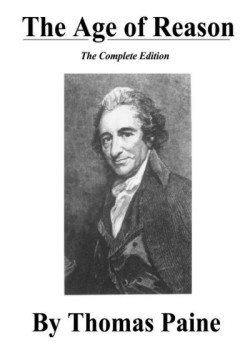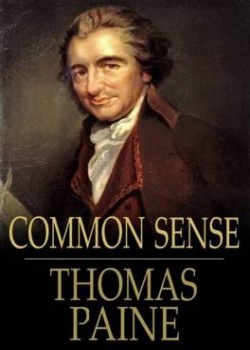CONSTITUTION OF THE UNITED STATES
CHAPTER XVI
POWER OVER NATURALIZATION AND BANKRUPTCY
§ 1107. The next clause is that congress:
"shall have power to establish an uniform rule of naturalization, and uniform laws on the subject of bankruptcies throughout the United States."
§ 1108. The propriety of confiding the power to establish an uniform rule of naturalization to the national government seems not to have occasioned any doubt or controversy in the convention. For aught that appears on the journals, it was conceded without objection. Under the confederation, the states possessed the sole authority to exercise the power; and the dissimilarity of the system in different states was generally admitted, as a prominent defect, and laid the foundation of many delicate and intricate questions. As the free inhabitants of each state were entitled to all the privileges and immunities of citizens in all the other states, it followed, that a single state possessed the power of forcing into every other state, with the enjoyment of every immunity and privilege, any alien, whom it might choose to incorporate into its own society, however repugnant such admission might be to their polity, conveniencies, and even prejudices. In effect every state possessed the power of naturalizing aliens in every other state; a power as mischievous in its nature, as it was indiscreet in its actual exercise. In one state, residence for a short time might, and did confer the rights of citizenship. In others, qualifications of greater importance were required. An alien, therefore, incapacitated for the possession of certain rights by the laws of the latter, might, by a previous residence and naturalization in the former, elude at pleasure all their salutary regulations for self-protection. Thus the laws of a single state were preposterously rendered paramount to the laws of all the others, even within their own jurisdiction. And it has been remarked with equal truth and justice, that it was owing to mere casualty, that the exercise of this power under the confederation did not involve the Union in the most serious embarrassments. There is great wisdom, therefore, in confiding to the national government the power to establish a uniform rule of naturalization throughout the United States. It is of the deepest interest to the whole Union to know, who are entitled to enjoy the rights of citizens in each state, since they thereby, in effect, become entitled to the rights of citizens in all the states. If aliens might be admitted indiscriminately to enjoy all the rights of citizens at the will of a single state, the Union might itself be endangered by an influx of foreigners, hostile to its institutions, ignorant of its powers, and incapable of a due estimate of its privileges.
§ 1109. It follows, from the very nature of the power, that to be useful, it must be exclusive; for a concurrent power in the states would bring back all the evils and embarrassments, which the uniform rule of the constitution was designed to remedy. And, accordingly, though there was a momentary hesitation, when the constitution first went into operation, whether the power might not still be exercised by the states, subject only to the control of congress, so far as the legislation of the latter extended, as the supreme law; yet the power is now firmly established to be exclusive. The Federalist, indeed, introduced this very case, as entirely clear, to illustrate the doctrine of an exclusive power by implication, arising from the repugnancy of a similar power in the states. "This power must necessarily be exclusive," say the authors; "because, if each state had power to prescribe a distinct rule, there could be no uniform rule."
§ 1110. The power to pass laws on the subject of bankruptcies was not in the original draft of the constitution. The original article was committed to a committee together with the following proposition: "to establish uniform laws upon the subject of bankruptcies, and respecting the damages arising on the protest of foreign bills of exchange." The committee subsequently made a report in favour of incorporating the clause on the subject of bankruptcies into the constitution; and it was adopted by a vote of nine states against one. The brevity, with which this subject is treated by the Federalist, is quite remarkable. The only passage in that elaborate commentary, in which the subject is treated, is as follows: "The power of establishing uniform laws of bankruptcy is so intimately connected with the regulation of commerce, and will prevent so many frauds, where the parties or their property may lie, or be removed into different states, that the expediency of it seems not likely to be drawn in question."
§ 1111. The subject, however, deserves a more exact consideration. Before the adoption of the constitution the states severally possessed the exclusive right, as matter belonging to their general sovereignty, to pass laws upon the subject of bankruptcy and insolvency. Without stopping at present to consider, what is the precise meaning of each of these terms, as contradistinguished from the other; it may be stated, that the general object of all bankrupt and insolvent laws is, on the one hand, to secure to creditors an appropriation of the property of their debtors pro tanto to the discharge of their debts, whenever the latter are unable to discharge the whole amount; and, on the other hand, to relieve unfortunate and honest debtors from perpetual bondage to their creditors, either in the shape of unlimited imprisonment to coerce payment of their debts, or of an absolute right to appropriate and monopolize all their future earnings. The latter course obviously destroys all encouragement to industry and enterprize on the part of the unfortunate debtor, by taking from him all the just rewards of his labour, and leaving him a miserable pittance, dependent upon the bounty or forbearance of his creditors. The former is, if possible, more harsh, severe, and indefensible. It makes poverty and misfortune, in themselves sufficiently heavy burthens, the subject or the occasion of penalties and punishments. Imprisonment, as a civil remedy, admits of no defence, except as it is used to coerce fraudulent debtors to yield up their present property to their creditors, in discharge of their engagements. But when the debtors have no property, or have yielded up the whole to their creditors, to allow the latter at their mere pleasure to imprison them, is a refinement in cruelty, and an indulgence of private passions, which could hardly find apology in an enlightened despotism; and are utterly at war with all the rights and duties of free governments. Such a system of legislation is as unjust, as it is unfeeling. It is incompatible with the first precepts of Christianity; and is a living reproach to the nations of christendom, carrying them back to the worst ages of paganism. One of the first duties of legislation, while it provides amply for the sacred obligation of contracts, and the remedies to enforce them, certainly is, pari passu, to relieve the unfortunate and meritorious debtor from a slavery of mind and body, which cuts him off from a fair enjoyment of the common benefits of society, and robs his family of the fruits of his labour, and the benefits of his paternal superintendence. A national government, which did not possess this power of legislation, would be little worthy of the exalted functions of guarding the happiness, and supporting the rights of a free people. It might guard against political oppressions, only to render private oppressions more intolerable, and more glaring.
§ 1112. But there are peculiar reasons, independent of these general considerations, why the government of the United States should be entrusted with this power. They result from the importance of preserving harmony, promoting justice, and securing equality of rights and remedies among the citizens of all the states. It is obvious, that if the power is exclusively vested in the states, each one will be at liberty to frame such a system of legislation upon the subject of bankruptcy and insolvency, as best suits its own local interests, and pursuits. Under such circumstances no uniformity of system or operations can be expected. One state may adopt a system of general insolvency; another, a limited or temporary system; one may relieve from the obligation of contracts; another only from imprisonment; another may adopt a still more restrictive course of occasional relief; and another may refuse to act in any manner upon the subject. The laws of one state may give undue preferences to one class of creditors, as for instance, to creditors by bond, or judgment; another may provide for an equality of debts, and a distribution pro ratâ without distinction among all. One may prefer creditors living within the state to all living without; securing to the former an entire priority of payment out of the assets. Another may, with a more liberal justice, provide for the equal payment of all, at home and abroad, without favour or preference. In short, diversities of almost infinite variety and object may be introduced into the local system, which may work gross injustice and inequality, and nourish feuds and discontents in neighbouring states. What is here stated is not purely speculative. It has occurred among the American states in the most offensive forms, without any apparent reluctance or compunction on the part of the offending state. There will always be found in every state a large mass of politicians, who will deem it more safe to consult their own temporary interests and popularity, by a narrow system of preferences, than to enlarge the boundaries, so as to give to distant creditors a fair share of the fortune of a ruined debtor. There can be no other adequate remedy, than giving a power to the general government, to introduce and perpetuate a uniform system.
§ 1113. In the next place it is clear, that no state can introduce any system, which shall extend beyond its own territorial limits, and the persons, who are subject to its jurisdiction. Creditors residing in other states cannot be bound by its laws; and debts contracted in other states are beyond the reach of its legislation. It can neither discharge the obligation of such contracts, nor touch the remedies, which relate to them in any other jurisdiction. So that the most meritorious insolvent debtor will be harassed by new suits, and new litigations, as often as he moves out of the state boundaries. His whole property may be absorbed by his creditors residing in a single state, and he may be left to the severe retributions of judicial process in every other state in the Union. Among a people, whose general and commercial intercourse must be so great, and so constantly increasing, as in the United States, this alone would be a most enormous evil, and bear with peculiar severity upon all the commercial states. Very few persons engaged in active business will be without debtors or creditors in many states in the Union. The evil is incapable of being redressed by the states. It can be adequately redressed only by the power of the Union. One of the most pressing grievances, bearing upon commercial, manufacturing, and agricultural interests at the present moment, is the total want of a general system of bankruptcy. It is well known, that the power has lain dormant, except for a short period, ever since the constitution was adopted; and the excellent system, then put into operation, was repealed, before it had any fair trial, upon grounds generally believed to be wholly beside its merits, and from causes more easily understood, than deliberately vindicated.
§ 1114. In the next place, the power is important in regard to foreign countries, and to our commercial credits and intercourse with them. Unless the general government were invested with authority to pass suitable laws, which should give reciprocity and equality in cases of bankruptcies here, there would be danger, that the state legislation might, by undue domestic preferences and favours, compel foreign countries to retaliate; and instead of allowing creditors in the United States to partake an equality of benefits in cases of bankruptcies, to postpone them to all others. The existence of the power is, therefore, eminently useful; first, as a check upon undue state legislation; and secondly, as a means of redressing any grievances sustained by foreigners in commercial transactions.
§ 1115. It cannot but be matter of regret, that a power so salutary should have hitherto remained (as has been already intimated) a mere dead letter. It is extraordinary, that a commercial nation, spreading its enterprise through the whole world, and possessing such an infinitely varied, internal trade, reaching almost to every cottage in the most distant states, should voluntarily surrender up a system, which has elsewhere enjoyed such general favour, as the best security of creditors against fraud, and the best protection of debtors against oppression.
§ 1116. What laws are to be deemed bankrupt laws within the meaning of the constitution has been a matter of much forensic discussion and argument. Attempts have been made to distinguish between bankrupt laws and insolvent laws. For example, it has been said, that laws, which merely liberate the person of the debtor, are insolvent laws, and those, which discharge the contract, are bankrupt laws. But it would be very difficult to sustain this distinction by any uniformity of laws at home or abroad. In some of the states, laws, known as insolvent laws, discharge the person only; in others, they discharge the contract. And if congress were to pass a bankrupt act, which should discharge the person only of the bankrupt, and leave his future acquisitions liable to his creditors, there would be great difficulty in saying, that such an act was not in the sense of the constitution a bankrupt act, and so within the power of congress. Again; it has been said, that insolvent laws act on imprisoned debtors only at their own instance; and bankrupt laws only at the instance of creditors. But, however true this may have been in past times, as the actual course of English legislation, it is not true, and never was true, as a distinction in colonial legislation. In England it was an accident in the system, and not a material ground to discriminate, who were to be deemed in a legal sense insolvents, or bankrupts. And if an act of congress should be passed, which should authorize a commission of bankruptcy to issue at the instance of the debtor, no court would on this account be warranted in saying, that the act was unconstitutional, and the commission a nullity. It is believed, that no laws ever were passed in America by the colonies or states, which had the technical denomination of "bankrupt laws." But insolvent laws, quite co-extensive with the English bankrupt system in their operations and objects, have not been unfrequent in colonial and state legislation. No distinction was ever practically, or even theoretically attempted to be made between bankruptcies and insolvencies. And an historical review of the colonial and state legislation will abundantly show, that a bankrupt law may contain those regulations, which are generally found in insolvent laws; and that an insolvent law may contain those, which are common to bankrupt laws.
§ 1117. The truth is, that the English system of bankruptcy, as well as the name, was borrowed from the continental jurisprudence, and derivatively from the Roman law. "We have fetched," says Lord Coke, "as well the name, as the wickedness of bankrupts, from foreign nations; for banque in the French is mensa, and a banquer or eschanger is mensarius; and route is a sign or mark, as we say a cart route is the sign or mark, where the cart hath gone. Metaphorically it is taken for him, that hath wasted his estate, and removed his bank, so as there is left but a mention thereof. Some say it should be derived from banque and rumpue, as he that hath broken his bank or state. Mr. Justice Blackstone inclines strongly to this latter intimation, saying, that the word is derived from the word bancus, or banque, which signifies the table or counter of a tradesman, and ruptus, broken; denoting thereby one, whose shop or place of trade is broken and gone. It is observable, that the first statute against bankrupt, is 'against such persons, as do make bankrupt,' (34 Hen. 8, ch. 4,) which is a literal translation of the French idiom, qui font banque route."
§ 1118. The system of discharging persons, who were unable to pay their debts, was transferred from the Roman law into continental jurisprudence at an early period. To the glory of Christianity let it be said, that the law of cession (cessio bonorum) was introduced by the Christian emperors of Rome, whereby, if a debtor ceded, or yielded up all his property to his creditors, he was secured from being dragged to gaol, omni quoque corporali cruciau semoto; for as the emperor (Justinian) justly observed, inhumanum erat spoliatum fortunis suis in solidum damnari; a noble declaration, which the American republics would do well to follow, and not merely to praise. Neither by the Roman, nor the continental law, was the cessio bonorum confined to traders, but it extended to all persons. It may be added, that the cessio bonorum of the Roman law, and that, which at present prevails in most parts of the continent of Europe, only exempted the debtor from imprisonment. It did not release or discharge the debt, or exempt the future acquisitions of the debtor from execution for the debt. The English statute, commonly called the "Lords' Act," went no farther, than to discharge the debtor's person. And it may be laid down, as the law of Germany, France, Holland, Scotland, and England, that their insolvent laws are not more extensive in their operation, than the cessio bonorum of the civil law. In some parts of Germany, we are informed by Huberus and Heineccius, a cessio bonorum does not even work a discharge of the debtor's person, and much less of his future effects. But with a view to the advancement of commerce, and the benefit of creditors, the systems, now commonly known by the name of "bankrupt laws," were introduced; and allowed a proceeding to be had at the instance of the creditors against an unwilling debtor, when he did not choose to yield up his property; or, as it is phrased in our law, bankrupt laws were originally proceedings in invitum. In the English system the bankrupt laws are limited to persons, who are traders, or connected with matters of trade and commerce, as such persons are peculiarly liable to accidental losses, and to an inability of paying their debts without any fault of their own. But this is a mere matter of policy, and by no means enters into the nature of such laws. There is nothing in the nature, or reason of such laws to prevent their being applied to any other class of unfortunate and meritorious debtors.
§ 1119. How far the power of congress to pass uniform laws on the subject of bankruptcies supersedes the authority of state legislation on the same subject, has been a matter of much elaborate forensic discussion. It has been strenuously maintained by some learned minds, that the power in congress is exclusive of that of the states; and, whether exerted or not, it supersedes state legislation. On the other hand, it has been maintained, that the power in congress is not exclusive; that when congress has acted upon the subject, to the extent of the national legislation the power of the states is controlled and limited; but when unexerted, the states are at liberty to exercise the power in its full extent, unless so far as they are controlled by other constitutional provisions. And this latter opinion is now firmly established by judicial decisions. As this doctrine seems now to have obtained a general acquiescence, it does not seem necessary to review the reasoning, on which the different opinions are founded; although, as a new question, it is probably as much open to controversy, as any one, which has ever given rise to judicial argumentation. But upon all such subjects it seems desirable to adopt the sound practical maxim, Interest reipublicae, ut finis sit litium.
§ 1120. It is, however, to be understood, that although the states still retain the power to pass insolvent and bankrupt laws, that power is not unlimited, as it was before the constitution. It does not, as will be presently seen, extend to the passing of insolvent or bankrupt acts, which shall discharge the obligation of antecedent contracts. It can discharge such contracts only, as are made subsequently to the passing of such acts, and such, as are made within the state between citizens of the same state. It does not extend to contracts made with a citizen of another state within the state, nor to any contracts made in other states.







The most important project on this website is "THE WORKS."
This is the place where you can read the words of the founding fathers and those who had a VERY BIG part in the founding of this country.
Not only do we have the Federalist and the Anti-Federalist Papers, but we also have other Constitutional Commentaries that were written shortly after the Constitution was ratified.